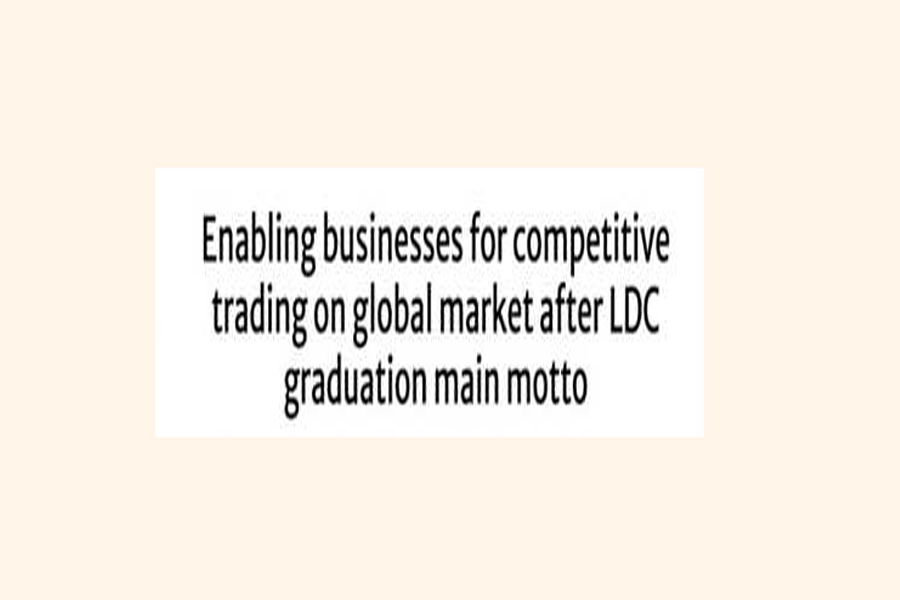Preparing for Bangladesh's trade competitiveness
Govt moves to waive VAT on exporters' local procurement

Published :
Updated :

A government move gets going to waive value-added tax (VAT) on local procurements by exporters to enhance the global competitiveness of Bangladesh's export sector, particularly in preparation for the privilege rescinded post-LDC era.
In a recent directive, the National Board of Revenue (NBR) clarified that local sourcing of raw materials and services by exporters under a "Deemed-Export" provision will be eligible for VAT exemption, subject to specific documentation and regulatory conditions.
This move follows repeated appeals from industry associations and exporters who argue that VAT on locally sourced inputs puts them at cost disadvantage compared to bonded-warehouse users, who enjoy duty-free import privileges.
According to the recent NBR clarification, the exemption will apply when goods and services are locally supplied for export purposes. Exporters will need to meet certain compliance requirements, such as conducting transactions in foreign currency and ensuring the supplies are properly documented in the Utilization Declaration (UD) or Utilization Permission (UP).
Furthermore, the exporter must operate under a bonded- or special-bonded warehouse approved by customs or another authorized body.
A senior official at the revenue board, speaking on condition of anonymity, has said, "The clarification is intended to eliminate the issue of double taxation on export-bound products that rely on local inputs."
Also, the special fiscal measure is meant for encouraging the growth of backward-linkage industries and reducing reliance on imports.
The official further notes that the clarification became necessary due to widespread confusion and allegations surrounding VAT practices among exporters.
Industry-insiders welcome the decision, saying that it could help reduce costs, particularly for non-traditional exporters and light-engineering firms that source raw materials domestically but sell in export markets either directly or through deemed-export arrangements.
With Bangladesh set to graduate from the least-developed country (LDC) category in 2026, policymakers view such support as a must-have for sustaining export growth amid rising global competition and the gradual erosion of trade preferences.
The move is part of the government's broader strategy to diversify exports, support small and medium enterprises, and promote local value addition within the export-supply chain.
According to the latest circular from the NBR, if a non-bonded supplier or a VAT-registered individual supplies goods or services to an exporter holding a bonded-warehouse licence, the transaction will be classified as deemed export. Under specific conditions, exporters will not be liable to pay VAT on these goods or services, says Mohiuddin Rubel, former Director of BGMEA.
Speaking to The Financial Express, Bangladesh Knitwear Manufacturers and Exporters Association (BKMEA) President Mohammad Hatem said the organisation had formally requested clarification from the NBR as many exporters-especially smaller firms-are increasingly relying on local raw materials.
He argues that the requirement of obtaining a bonded-warehouse licence is "both costly and outdated'.
The trade leader points out that the bonded-warehouse rules were developed nearly four decades ago when most raw materials were imported. "Today, due to the development of a strong domestic backward -linkage industry, many knitwear manufacturers can source all necessary raw materials locally."
In this context, he says, the bonded-warehouse condition is no longer relevant for such exporters.
Hatem also notes that the use of inland back-to-back letters of credit increases costs for both buyers and suppliers.
As an alternative, he suggests that exporters should simply be required to submit proof of export-earning repatriation to qualify for the VAT waiver.
Leaders in the apparel industry have emphasized that the government's intent is to reduce business costs for exporters and ensure their competitiveness on the free-for-all global market.
newsmanjasi@gmail.com


 For all latest news, follow The Financial Express Google News channel.
For all latest news, follow The Financial Express Google News channel.